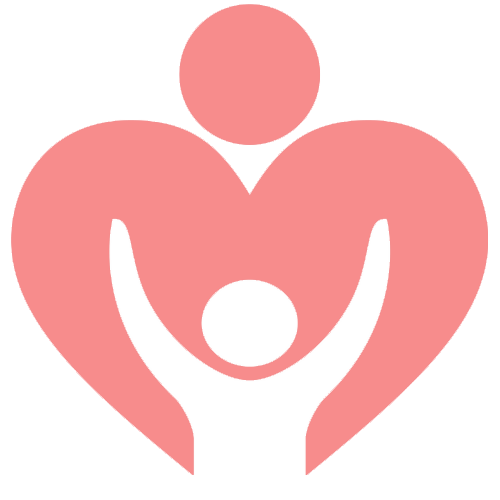A woman in position may experience a feeling of loss of balance, weakness, and a sensation of rotation of surfaces. This is a manifestation of dizziness, which is one of the common signs and symptoms of pregnancy.
Dizziness can appear for physiological reasons and under the influence of external factors. The hormonal background of a pregnant woman changes. There is an increase in the amount of blood and its redistribution. This provokes frequent weakness, shortness of breath, and dizziness.
A symptom may be the result of a coincidence of negative external factors: heat, direct sunlight, stuffiness, and a sharp change in position.
When Does Dizziness Start in Pregnancy?
A woman in position begins to feel dizzy towards the end of the first trimester. Subsequently, episodic manifestations of the symptom are noticeable in the second and third trimesters. They will be related to the growth of the uterus, pressure, external causes, or health problems. The onset of manifestations of dizziness is always accompanied by the poor health of the pregnant woman.
EXACT WEEKS IT MAY HAPPEN
The symptom of dizziness is most often observed from the 10th to the 12th week of pregnancy. A feeling of loss of balance may occur in the 15th and 19th weeks.
Blurred vision, and weakness, with a feeling of loss of firmness in the legs, appear from the 26th to the 29th week of pregnancy. Dizziness may appear in the 34th week.

When will it end?
Dizziness may resolve by the 13th week of pregnancy if pressure is controlled and there are no health problems. The symptom completely ceases to bother women after the 29th week. The body adapts to internal changes and is less sensitive to external factors at this time. This symptom after the 34th week occurs only as a sign of another disease.
How Dizziness Usually Feels during Pregnancy?
Dizziness begins with a feeling of weakness and a sensation of uncontrolled movement of objects and surfaces. The woman loses her balance, cannot stand on her feet, feels sluggishness of the muscles, and blurred vision. Depending on the cause of dizziness, its manifestation can be acute or mild.
Acute
The pregnant woman feels tinnitus, pulsation of the temples, a sharp loss of balance, palpitations, and cold sweat with severe symptoms. There are visual disturbances, movement of objects, and blurring of the picture. The symptom may be accompanied by nausea.
Mild
Dizziness is a short-term symptom in a mild manifestation. It is felt with a sharp change in position in the form of loss of balance, a feeling of chaotic body movements, and weakness. The woman’s eyes darken briefly and she loses control of her body.
Dizziness during pregnancy should not last all day. This manifestation indicates the presence of more serious health problems.
Prevention methods
It is necessary to take care of your health in advance so that dizziness during the period of bearing a child manifests itself to a lesser extent. Get tested if you feel frequently unwell and weak. Identify the cause of dizziness and eliminate it before conception occurs. Here are some examples of basic preventive measures to combat dizziness:
Examination
Check your blood pressure, blood sugar, and hemoglobin in preparation for pregnancy. Engage in health improvement therapy if abnormalities are identified. Make an x-ray or MRI of the cervical region if there is a suspicion of osteochondrosis. This cannot be done during the gestation period.
Physical activity
Exercise before pregnancy. Keep moderate physical activity during the gestation period. Yoga, gymnastics, and a swimming pool are the best means to strengthen blood vessels, increase muscle tone, and improve lymph flow and the functioning of the autonomic nervous system. Change your sedentary lifestyle to a more active one. This will significantly reduce the risk of spontaneous dizziness.
Healthy sleep
Sleep at least 8 hours a day. Prevent late work and insomnia. Chronic lack of sleep leads to irreversible consequences and malfunctions of the nervous system. This provokes problems with blood vessels, pressure, and hormonal levels. There is a high risk of developing chronic diseases.
Why Dizziness Occurs in Pregnancy?
Many causes of dizziness can be avoided. This is a long stay in a stuffy room, a sedentary lifestyle, a sharp change in position, being in the scorching sun, and dehydration. There are also internal factors: redistribution of blood flow, hormonal imbalance, lowering blood sugar, and low hemoglobin levels. These causes are more typical of the pregnancy condition.
Dizziness can be a secondary symptom of diseases: osteochondrosis, hypotension, cardiovascular insufficiency, problems with the vestibular apparatus, and psychosomatic disorders. This symptom is observed with lesions of the inner ear, traumatic brain injury, or other causes.
Loss of balance and even loss of consciousness can be the result of severe stress, overwork, non-compliance with sleep patterns, and strong emotional overexcitation.
Remedies
It is worth knowing some tricks and rules for self-help with dizziness. They include measures to reduce the risk of a symptom: proper nutrition, regular walks, a drinking regimen, and physical activity. Among the most simple and effective remedies for dizziness are the following:
Headwear
Do not go outside in the summer without a hat. The scorching sun and heat are provocateurs of poor health, dizziness, and fainting. Protect yourself from direct sunlight in the shade. Avoid prolonged exposure to the sun. Choose lightweight hats made from natural fabrics or straw. They better reflect the sun’s rays and do not cause overheating.
Water
Always carry bottled water with you. It should be a must-have item in your bag from the very first days of pregnancy. Water will help you stay hydrated and will make you feel dizzy and faint. You need to immediately drink a few large sips of water, wash your face and sit down if you feel weak.
Ammonium chloride or essential oils
Dizziness is often the beginning of fainting. Carry ammonia, peppermint, eucalyptus, or geranium essential oil with you if you have frequent symptoms. They quickly lead to feelings and bring out a state of loss of balance. Inhaling vapors of essential oils and ammonia is not worth it without a reason. Use these tools only for their intended purpose.
WHEN TO CONTACT A DOCTOR?
Be aware of symptoms associated with dizziness. Severe and sudden headache, discomfort and pressure in the heart area, numbness of the limbs – the reason to call an ambulance.
Do not miss the signal to see a doctor. This is when dizziness is observed throughout the day or for several days and not episodically. Call a doctor immediately if it is accompanied by vomiting and loss of consciousness, bluishness of the body, or pallor of the lips.
What Not to Do
Do not panic and make a fuss with a mild form of the symptom of dizziness. This is a completely normal manifestation of pregnancy. The main thing is to control yourself and not panic. It can exacerbate the condition at the psychosomatic level. There are some prohibitions to avoid the likely consequences of dizziness:
Don’t keep moving
Be sure to stop, sit down and wait out the attack if dizziness caught you on the street while walking. It is better to ask for the help of others.
Drink caffeinated drinks
Coffee is not a remedy for dizziness. Caffeine can be dangerous for disorders in the functioning of the cardiovascular system.
Ignore accompanying symptoms
Normally, there should be no severe headaches, chest pressure, loss of consciousness, and paralysis of body parts. Don’t ignore these symptoms.












